In order to generate a more inclusive dataset of Pseudomonas genes mapped to putative in-paralogs and putative orthologs in other Pseudomonas species/strains, we developed a Pseudomonas Orthologous Groups classification system.
To generate ortholog groups, pair-wise DIAMOND searches were run on all genomes in the database to find reciprocal best hits (RBHs) for each gene. These analyses often resulted in multiple candidate genes for RBH status, which were narrowed down by examining the similarity between the query's flanking genes and the hit's flanking genes. If two candidate genes were directly adjacent, they where both accepted as RBHs that involve putative in-parology.
Pairwise intra-genome DIAMOND searches were also performed to acquire in-paralog information (i.e. gene duplications occurring after species divergence). If two genes in one genome were reciprocally more similar to each other than to any gene in the other genomes, the two genes were designated putative in-paralogs. Ortholog groups are built by starting with a seed gene and then adding all genes to which there is a RBH or in-paralog relationship.
Every new gene added to an ortholog group was then treated as a seed gene and the addition process was repeated until all qualifying genes had been added. The result was the development of orthologous groups, specifically generated for Pseudomonas species genomes, which can be used to sort search results.
Pseudomonas Ortholog Group POG004214
| Strain | Locus Tag | Description | Same-Strain Members | Fragment ? | |
|---|---|---|---|---|---|
| Pseudomonas aeruginosa PAO1 (Stover et al., 2000) | PA4554 |
type 4 fimbrial biogenesis protein PilY1
pilY1 |
1 member |
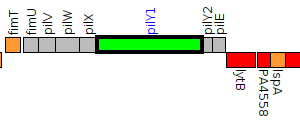
|
|
| Pseudomonas aeruginosa UCBPP-PA14 (Lee et al., 2006) | PA14_60310 |
type 4 fimbrial biogenesis protein PilY1
pilY1 |
1 member |
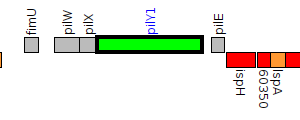
|
|
| Pseudomonas aeruginosa PA7 | PSPA7_5194 |
type 4 fimbrial biogenesis protein PilY1
pilY1 |
1 member |
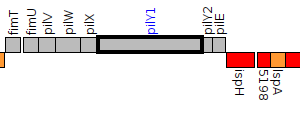
|
|
| Pseudomonas syringae pv. tomato DC3000 (Buell et al., 2003) | PSPTO_0815 |
type IV pilus-associated protein
|
1 member |
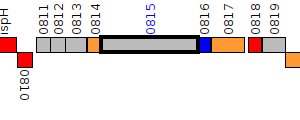
|
|
| Pseudomonas stutzeri A1501 | PST_0970 |
type 4 fimbrial biogenesis protein PilY1
pilY1 |
1 member |
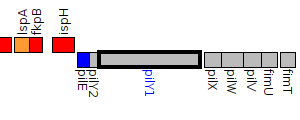
|
|
| Pseudomonas aeruginosa LESB58 | PALES_49371 |
type 4 fimbrial biogenesis protein PilY1
pilY1 |
1 member |
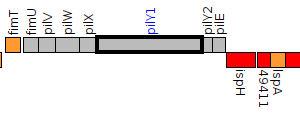
|
|
| Pseudomonas protegens Pf-5 | PFL_5312 |
type IV pilus-associated protein
|
1 member |
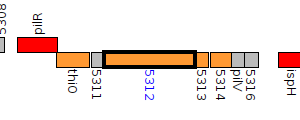
|
|
| Pseudomonas aeruginosa 19660 | Q010_04042 |
hypothetical protein
|
1 member |
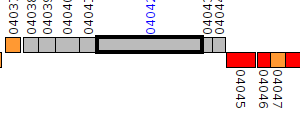
|
|
| Pseudomonas aeruginosa 19BR | IAI_RS0126220 |
type 4 fimbrial biogenesis protein PilY1
|
1 member |
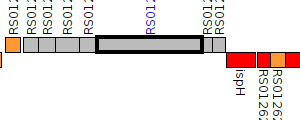
|
|
| Pseudomonas aeruginosa 213BR | IAK_RS0126075 |
type 4 fimbrial biogenesis protein PilY1
|
1 member |
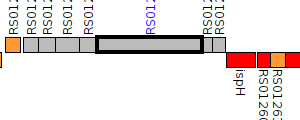
|
|
| Pseudomonas aeruginosa 3573 | AJ60_02069 |
type 4 fimbrial biogenesis protein PilY1
|
1 member |
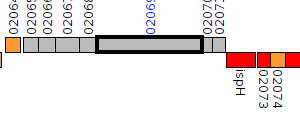
|
|
| Pseudomonas aeruginosa 3575 | AJ62_04750 |
type 4 fimbrial biogenesis protein PilY1
|
1 member |
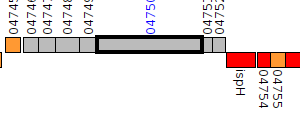
|
|
| Pseudomonas aeruginosa 3576 | AJ63_02931 |
pilus assembly protein PilY
|
1 member |
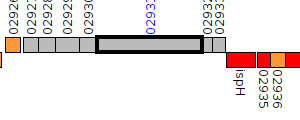
|
|
| Pseudomonas aeruginosa 3577 | AJ64_03760 |
type 4 fimbrial biogenesis protein PilY1
|
1 member |
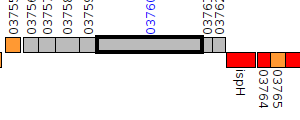
|
|
| Pseudomonas aeruginosa 3580 | AJ67_03005 |
type 4 fimbrial biogenesis protein PilY1
|
1 member |
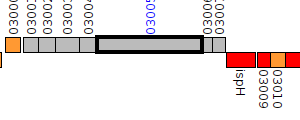
|
|
| Pseudomonas aeruginosa 3581 | AJ68_03366 |
type 4 fimbrial biogenesis protein PilY1
|
1 member |
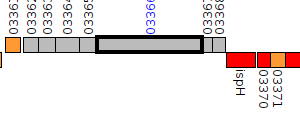
|
|
| Pseudomonas aeruginosa 39016 - Assembly GCF_000148745.1 | PA39016_000880013 |
type 4 fimbrial biogenesis protein PilY1
|
1 member |
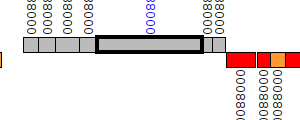
|
|
| Pseudomonas aeruginosa 6077 | Q011_06144 |
type 4 fimbrial biogenesis protein PilY1
|
1 member |
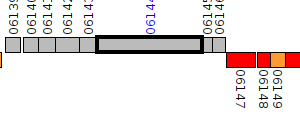
|
|
| Pseudomonas aeruginosa 62 - Assembly GCF_000482025.1 | P997_02292 |
hypothetical protein
|
1 member |

|
|
| Pseudomonas aeruginosa 9BR | GW5_RS0126585 |
type 4 fimbrial biogenesis protein PilY1
|
1 member |
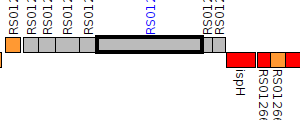
|